#human experience
Text
Every middle aged and elderly woman I meet was once just a little girl. Every man I meet was once just a little boy. I love seeing peoples baby pictures because they all really do look like themselves. You can see their child self in their adult face. It’s always a part of you, it's not some separate entity and it's not only in the past, you carry every age with you. You will always be you.
#thought it was cute but it was posted by a t*rf#so im stealing it#text#txt#text post#txt post#love#lovecore#cute#quotes#cute quotes#sweet quotes#adorable#happy#people#humans#us#.txt#.txtpst#.txtpost#age#human experience
600 notes
·
View notes
Text
Here is a familiar picture: a girl surrounded by people she knows opens her mouth and shuts it again, the way one does with a shoe-box of old things that are precious only to the one who owns them. This is a self-imposed silence that emerges from understanding that a braided string, a misshapen crystal, and a blackened eraser stabbed 23 times have no worldly purpose. But with the profound solitude of loving something that no one else loves comes the lifelong necessity of loving that something enough to make up for the solitude. This is an ultimate truth. But most days it will feel like a burden. This is the other ultimate truth.
Sometimes there is a dull pulse in my ears which speaks of the absurdity of gravity: how all things must eventually fall, like apples, like arrow-shot birds, like people who’ve climbed to the top. It is as much a scientific fact as it is a personal doomsday clock (in fact there is a good deal of overlap between the two). But when you bear the responsibility of loving something, you cannot particularly afford to fall. It’s about pride. Or maybe pride is the bandaid-word for shame. Either way, your eraser parodies of Roman dictators are still waiting for you to come home, so come home you must.
But yes, some days, you will not want to come home. For instance, the day you come to the realisation that you exist purely as a convenient concept to most people you know is possibly crushing, depending on the person who inadvertently induces this realisation. Doomsday science pulls you back down to Earth—after years of believing that you’re more than just a figment of other people’s imaginations, your feet finally touch the ground. There is soil caught uncomfortably between your toes. Most people will never know this. In fact, you understand now that most people probably forget you even have toes.
I really believe now that to him, I’ll always be 17 years old, bright in useless ways and clumsy with my mouth and heart and hands. Forgiving to a fault, laughably predictable, and always, always beneath him. And I believe now that to them, I’ll always be a female option before I am my own person. It will never matter to them what I like to read or what keeps me awake at night or what that idiotic crystal meant to me when I was ten. And I believe now that to them, I am just an accommodating, one-dimensional idea attached to a four-syllable word.
They don’t tell you how hard it is to resist throwing out the whole goddamned shoe-box. But you know you’d regret it. Sure, it’s terribly old and it’s kind of musty and useless, but it’s yours. Even if no one gives it a second glance, even if they throw it down and step on it and spit on it, it’s yours. It hurts when they don’t see you as a person. But I am not an idiot who opens her shoe-box to people who don’t want to understand a thing. Closing my mouth is an act of pride, not shame. Precious things should be kept safe for those who love them, and to hell with those that don’t. This is my favourite ultimate truth.
#my writing#prose#poetry#prose poetry#writing#words#my words#spilled thoughts#poem#poems#poems and poetry#aesthetic#art#self love#self confidence#independence#human experience#the human condition#pride#shame
288 notes
·
View notes
Text
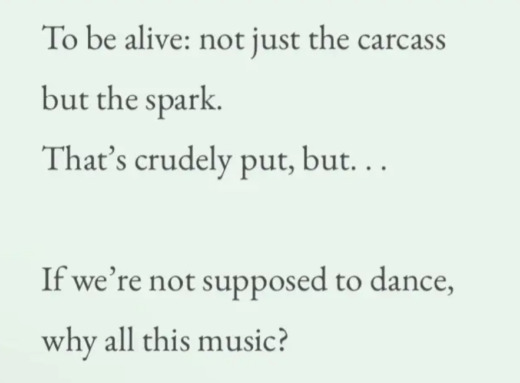
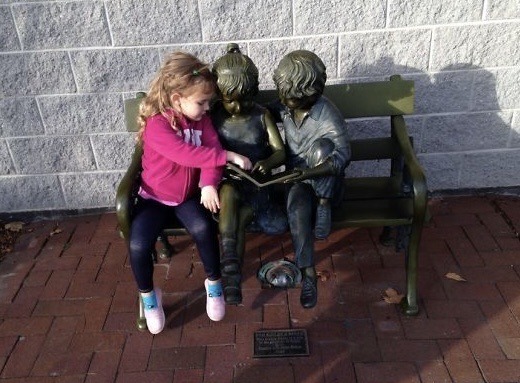
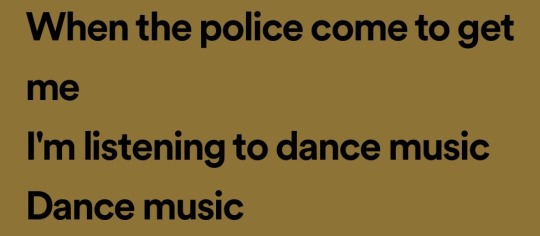
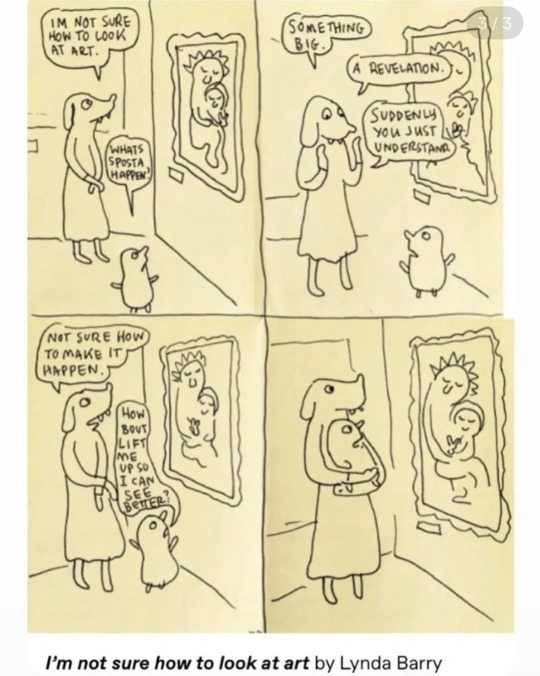
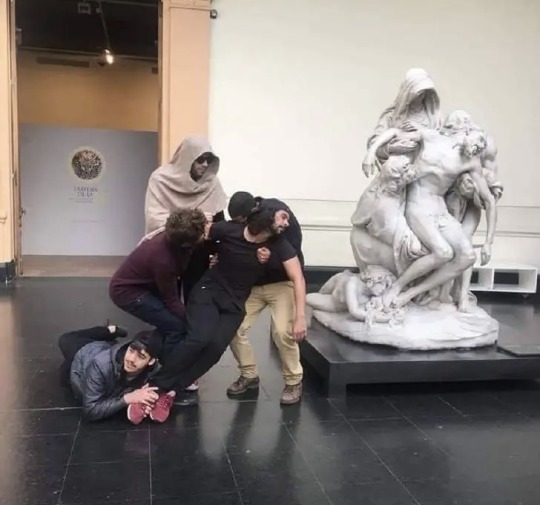
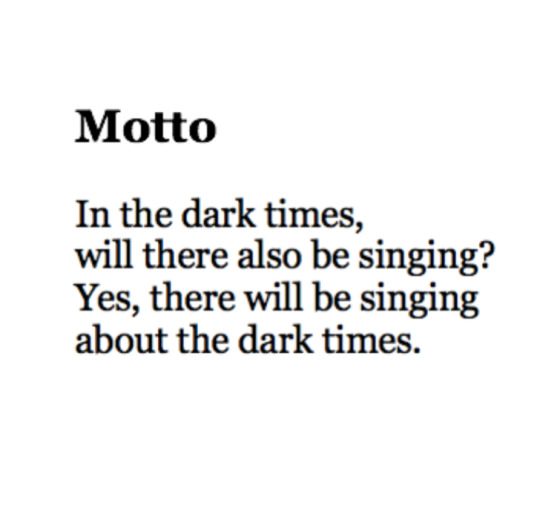
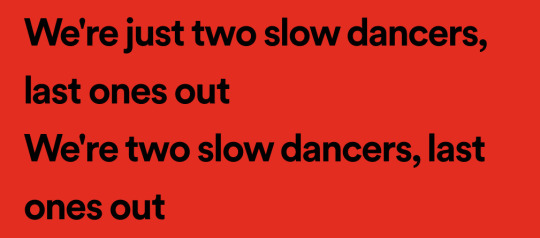
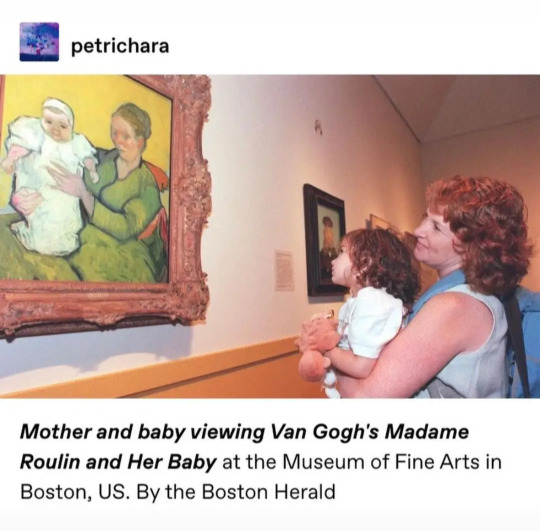
yes, there will be singing
#art is truly the epitome of the human soul in my opinion#what a beautiful way to connect to one another#do you think van gogh knew that mothers and children would see themselves in his painting all these years later?#theres a specific low quality image probably from the 2000s of a little girl posing in front of a painting in a museum#and i REALLY wanted to include it i love the pure joy in that image but i cant find it for the life of me#if anyone is reading this and can find the image PLEASE HELP. PLEAAASEEEE.#she looks like shes dancing and her hair is tossing around its so full of life#stardotnet#webweaving#web weaving#corecore#webweave#poem#art#artwork#museum#human connection#human experience#hopecore#aesthetic#making art#viewing art#the mountain goats lyrics#the mountain goats#dance music#mitski#mitski lyrics#van gogh#life#music
250 notes
·
View notes
Text
We should also consider if the inhabitants of the mega-sites consciously managed their ecosystem to avoid large-scale deforestation... Archaeological studies of their economy suggest a pattern of small-scale gardening, often taking place within the bounds of the settlement, combined with the keeping of livestock, cultivation of orchards, and a wide spectrum of hunting and foraging activities. The diversity is actually remarkable, as is its sustainability. As well as wheat, barley, and pulses, the citizens' plant diet included apples, pears, cherries, sloes, acorns, hazelnuts and apricots. Mega-site dwellers were hunters of red deer, roe deer, and wild boar as well as farmers and foresters. It was 'play farming' on a grand scale: an urban populous supporting itself through small-scale cultivation and herding, combined with an extraordinary array of wild foods.
This way of life was by no means 'simple'. As well as managing orchards, gardens, livestock and woodlands, the inhabitants of these cities imported salt in bulk from springs in the eastern Carpathians and the Black Sea littoral. Flint extraction by the ton took place in the Dniestr valley, furnishing material for tools. A household potting industry flourished, its products considered among the finest ceramics of the prehistoric world; and regular supplies of copper flowed in from the Balkans. There is no firm consensus from archaeologists about what sort of social arrangements all this required, but most would agree the logistical challenges were daunting. A surplus was definitely produced, and with it ample potential for some to seize control of the stocks and supplies, to lord it over others or battle for the spoils; but over the eight centuries we find little evidence for warfare or the rise of social elites.
a description of talianki (located in modern day ukraine), a neolithic site from 5,700 years ago (inhabited from roughly 4100 to 3300 bc) from the dawn of everything by davids: graeber and wengrow
once again this book is fantastic - and one of its main theses is that "the agricultural revolution" and some of the conclusions we draw from it are, largely, not true.
the development of farming in human societies is a much much longer and more "playful" process than popular narratives would have us believe. 'agricultural revolution' suggests an on/off switch almost. and the way it's usually taught sees agriculture being "invented" and then spreading like wildfire to take over the globe - only then allowing for true cities and the "necessary evils" they entail. this simply isn't true. an urban, farming society is not automatically doomed to bureaucracy, inequality, and exploitation.
all across the world the archaeological evidence points to the domestication of plants taking literal thousands of years longer than it "ought to." and then, even when the domestication of a wild plant was complete there isn't an immediate rise of huge fields and class stratification (as the popular narrative goes). again - in the magnitude of multiple thousands of years. we have generations upon generations of humans with farming know-how who don't immediately begin a march of politics and inequality precipitated by farming.
agriculture isn't humanity's curse no matter what the memes and capitalists say. we are not doomed to our current ways - we can imagine, we can build, we can create new ways of being. the past is the present is the past. and fuck you capitalism and doomed "human nature" debates. and read the dawn of everything <3
#eezordalf's wisdom#anthropology#david graeber#david wengrow#books#history#wizardblr#wizardposting#the dawn of everything#talianki#ukraine#archaeology#neolithic#prehistory#studying my tomes#humanity i love you#the human condition#human experience
205 notes
·
View notes
Text
The Philosophy of Curiosity
The philosophy of curiosity explores the nature, origins, and implications of human curiosity, which drives individuals to seek knowledge, explore new experiences, and ask questions about the world around them. Curiosity has long been recognized as a fundamental aspect of human cognition and behavior, playing a central role in scientific inquiry, philosophical reflection, and everyday life. Here are some key aspects and theories within the philosophy of curiosity:
Epistemic Curiosity: Epistemic curiosity refers to the desire for knowledge and understanding, motivating individuals to seek information, explore new ideas, and engage in intellectual pursuits. Philosophers have debated the nature of epistemic curiosity, its origins in human cognition, and its role in shaping scientific progress and cultural development.
Aesthetic Curiosity: Aesthetic curiosity pertains to the exploration of beauty, art, and creativity, driving individuals to seek out new experiences, appreciate diverse forms of expression, and engage with works of literature, music, visual art, and other cultural artifacts. Aesthetic curiosity raises questions about the nature of artistic inspiration, cultural interpretation, and subjective experience.
Existential Curiosity: Existential curiosity concerns the exploration of existential questions about the nature of existence, meaning, and purpose, motivating individuals to reflect on their own lives, values, and beliefs. Existential curiosity encompasses inquiries into topics such as the nature of consciousness, the search for transcendence, and the quest for personal fulfillment.
Philosophical Curiosity: Philosophical curiosity involves the pursuit of philosophical inquiry, critical thinking, and self-reflection, prompting individuals to question assumptions, challenge conventional wisdom, and explore fundamental concepts such as truth, morality, justice, and reality. Philosophical curiosity underlies the practice of philosophy as a discipline and informs broader intellectual endeavors.
Ethical Curiosity: Ethical curiosity concerns the exploration of ethical questions and moral dilemmas, motivating individuals to consider the consequences of their actions, empathize with others, and strive for moral growth and development. Ethical curiosity raises questions about the nature of moral values, ethical principles, and the pursuit of the good life.
Cognitive Curiosity: Cognitive curiosity encompasses the exploration of cognitive processes, mental states, and psychological phenomena, driving individuals to understand how the mind works, how knowledge is acquired, and how beliefs are formed. Cognitive curiosity informs research in fields such as psychology, neuroscience, and cognitive science.
Cultural Curiosity: Cultural curiosity involves the exploration of diverse cultures, traditions, and worldviews, prompting individuals to learn about different societies, languages, and customs, and to appreciate the richness of human diversity. Cultural curiosity fosters intercultural understanding, global awareness, and cross-cultural communication.
Metacognitive Curiosity: Metacognitive curiosity pertains to the exploration of one's own cognitive processes and learning strategies, motivating individuals to reflect on their own thinking, monitor their own understanding, and adapt their learning strategies to achieve greater intellectual growth and self-improvement.
Overall, the philosophy of curiosity explores the multifaceted nature of human curiosity and its profound influence on knowledge, creativity, personal growth, and the human condition.
#philosophy#epistemology#knowledge#learning#chatgpt#education#psychology#Epistemic curiosity#Aesthetic curiosity#Existential curiosity#Philosophical curiosity#Ethical curiosity#Cognitive curiosity#Cultural curiosity#Metacognitive curiosity#Human cognition#Inquiry#Exploration#Intellectual curiosity#Human experience#Curiosity and creativity#Curiosity and learning
57 notes
·
View notes
Text
Language fun fact 1
People can have more than one first language. A few examples:
Children of immigrants very often learn both their parents language and the official one of their host country at an early age and develop fluency and a strong attachment to both. Oftentimes they speak in two languages before even the time of their first conscious memory.
Sometimes they don't just learn their parents language and the official language but also the local dialect or the minority language of the region. Example would be a child being born or brought early to Barcelona and learning both Spanish and Catalan in addition to their parents language. Which leads to my next example.
Sometimes the country someone is born in has two or more official languages or two or more languages are very widely spoken and used. People from countries like Tunis, Morocco and Algeria usually speak both Arabic and French.
There's also the example of couples from two different languages living in the territory of another language and their children learning all three.
However, we must not assume that the examples I listed always happen. Also we must not assume that someone from a certain ethnic group speaks the language traditionally used by that group.
Oftentimes immigrant parents DON'T teach their language to their children and those kids end up knowing only the local language. Sometimes people of an ethnic group don't learn their ancestral language despite living on that group's traditional territory due to being part of a larger country. Example would be Basque people in Spain or Kurdish people in Turkey not knowing Basque or Turkish. Conversely, sometimes a group isolates itself so much children from it speak the official language like a foreign tongue. Example would be Hungarians in Romania.
Hope the info was entertaining xD
148 notes
·
View notes
Text
This is wild
54 notes
·
View notes
Text
In the words of Kafka, the sentiment that anything we hold dear is prone to slipping from our grasp resonates deeply. The truth of his observation is undeniable: the things we cherish most are often ephemeral, destined to fade away. Yet, within this paradox lies a glimmer of hope. Love, a force that defies reason and transcends boundaries, possesses an innate resilience. It may elude us in its familiar form, slipping through our fingers like grains of sand. But as time unfolds its intricate tapestry, love has a way of reemerging, transformed and reimagined. It manifests anew, a testament to its enduring nature. Kafka's insight serves as a poignant reminder that the cycle of loss and rediscovery is an intrinsic facet of the human experience, an enigmatic dance between vulnerability and resurgence.
.
#love#loss#resilience#transformation#human experience#kafka#rediscovery#vulnerability#emotions#philosophy#reflection#relationships#life's paradoxes#enduring bonds
47 notes
·
View notes
Text
The human experience is brutal.
25 notes
·
View notes
Photo

28 notes
·
View notes
Text
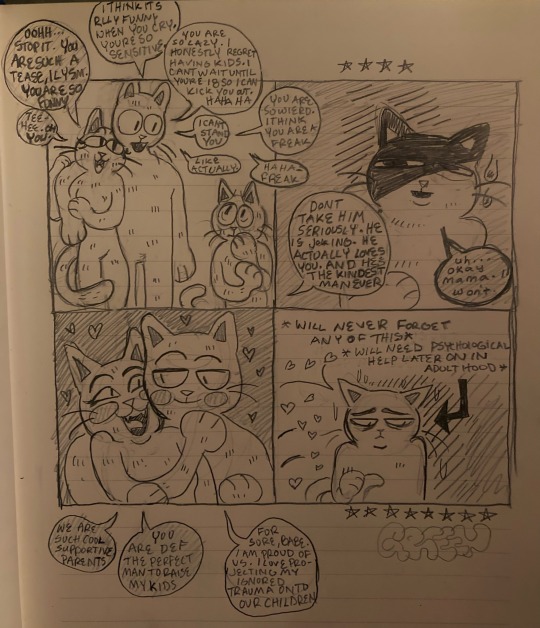
I will use humor to process my inner demons
34 notes
·
View notes
Text
instagram
blackinformationnetwork
A TikToker by the name of hustlanani, who identified as a DC college student named Sanai, has raised over $150,000 after helping a homeless man with prostate cancer in a video that's gone viral.
In the video, Sanai said she was vlogging her trip to the grocery store when a homeless man asked if she could buy him tea. She noted that the man didn't ask for money, so she offered for him to join her on her grocery store trip. During their walk, the man revealed that he needed his medication refilled for the pain he was experiencing. The college student took the man to multiple pharmacies to have his prescription filled and made a stop at Starbucks for tea.
When the man told her that he stayed at a church, Sanai decided to check him into a hotel room for a night. The TikTok video of Sanai helping the homeless man, who has been identified as Alonzo, garnered over 12 million views. Social media users praised the college student for how she helped the man. As of Thursday (February 1), Sanai raised over $150,000 that she plans to use to "make sure he has a place to live, new clothes, shoes, a bank account, doctor's appointments, a phone, etc," she wrote on GoFundMe. Sanai said she plans to document the rest of their journey on her TikTok.
Click LINK IN BIO for more details.
[TikTok: hustlanani]
#Instagram#Humanity#humans being humans#human experience#people being people#society#humanity is beautiful#humanity is good#human beings#Faith in humanity#faith in humanity restored#human things
16 notes
·
View notes
Text
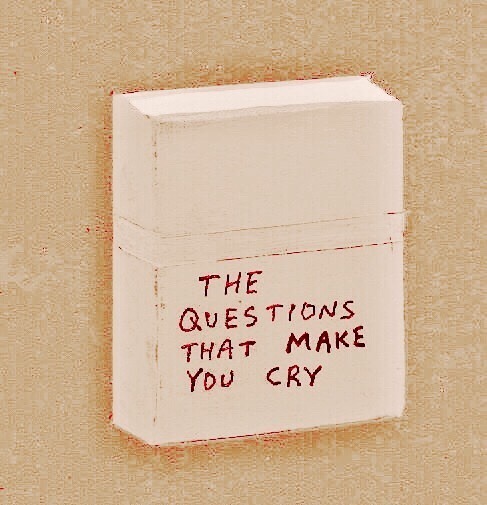
#art#book#questions#tears#emotions#feelings#humanity#human experience#love#loss#grief#pain#healing#growth#self-discovery#self-awareness#connection#compassion#empathy#understanding
28 notes
·
View notes
Text
"Truth is as terrible as death but harder to find."
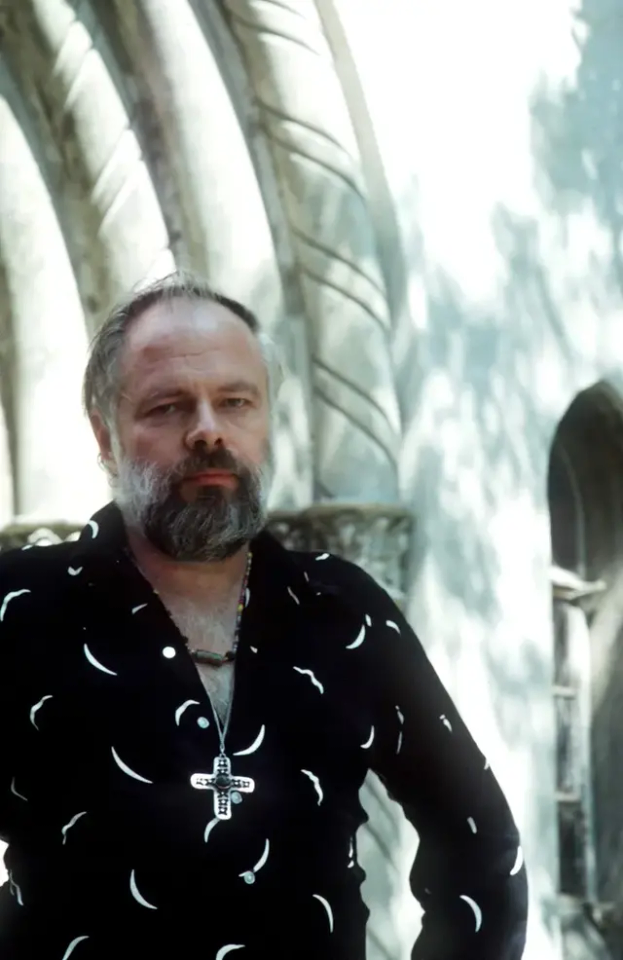
Philip Kindred Dick, often referred to by his initials PKD, was an American science fiction writer. He wrote 44 novels and about 121 short stories, most of which appeared in science fiction magazines during his lifetime.
Born: 16 December 1928, Chicago, Illinois, United States
Died: 2 March 1982, Santa Ana, California, United States
Influential Works: Philip K. Dick's impact on science fiction is profound, with several of his works adapted into popular films. "Do Androids Dream of Electric Sheep?" served as the basis for the iconic film "Blade Runner," directed by Ridley Scott. The movie's success helped cement Dick's reputation in mainstream culture.
Personal Struggles: Dick faced numerous personal challenges throughout his life, including financial difficulties and mental health issues. His struggles with mental health and experiences with hallucinations and visions heavily influenced his writing, contributing to the surreal and introspective nature of many of his works.
Prolific Output: Despite his personal challenges, Dick maintained a remarkably prolific writing career. He wrote 44 novels and over 100 short stories during his lifetime. His ability to produce imaginative and thought-provoking content at such a high volume is a testament to his dedication to the craft of writing.
Philosophical Themes: Dick's works often explore philosophical and metaphysical themes, challenging the boundaries of reality and identity. Questions about what is real, the nature of consciousness, and the impact of technology on humanity are recurring motifs in his stories, reflecting his deep interest in these subjects.
Posthumous Recognition: While he faced financial struggles during his lifetime, Philip K. Dick gained increased recognition after his death. His influence on science fiction literature and the exploration of complex philosophical ideas have earned him a lasting legacy. The Philip K. Dick Award, established in 1982, is given annually to outstanding science fiction works in paperback original format, honoring his contributions to the genre.
#Philip K. Dick#PKD#Science Fiction#American Writer#Novelist#Short Stories#Blade Runner#The Man in the High Castle#Ubik#A Scanner Darkly#Reality#Identity#Metaphysical Themes#Sci-Fi Literature#Prolific Author#Psychological Exploration#Mind-bending#Human Experience#Science Fiction Magazines#Literary Legacy
15 notes
·
View notes
Text
I cannot imagine life without feeling every moment and emotion at 100%. Every feeling I have is vivid, intense, and consuming. Both good and bad. Even neutral experiences are fully captivating. Do other people not cry with joy to see a sunset, or a friend doing well? Do others not viscerally ache to see a stranger suffer, or a tree fall? I cannot imagine what it’s like to be apathetic. Even when I feel numb, I am aware that I feel SO numb. I feel the lack.
What is it like to live without being thoroughly enraptured or radiantly calm or devouringly miserable?
I just realized that maybe this isn’t the common experience. I am so often overwhelmed by love, just such fervent, intense, all-powerful adoration— for anything! My husband, my pets, a flower, a dragonfly, the breeze, my breath— and so burdened by injustices that I’ve never even felt directly.
Just?! Like I have a psychology degree, so I have a general idea of the human experience on a universal scale, but it just occurred to me for the first time in a while that I don’t often hear people talk about feeling things so completely.
#emotions#human experience#goblin posting#feelings#is this normal#this might be indicative of an illness bestie#love#grief#awe#mood swings#humanity#psychology#psychology of emotion
41 notes
·
View notes
Text
The Dance of Perspectives and Beliefs: Shaping Our Worldview
Our lives are a delicate interplay of perspectives and beliefs, two elements that quietly sculpt the contours of our worldview. As we navigate the complex tapestry of existence, our perspectives serve as the lens through which we view the world, while our beliefs lay the foundation upon which our decisions and actions are built.
Perspectives Shape Beliefs: Our perspectives, which are influenced by our upbringing, culture, experiences, and personal values, play a significant role in shaping our beliefs. When we encounter new information or ideas, our existing perspectives filter and interpret that information, leading to the formation or reinforcement of our beliefs.
Beliefs Influence Perspectives: Conversely, our beliefs also influence our perspectives. When we strongly hold a particular belief, it can color the way we perceive and interpret the world around us. This can lead to confirmation bias, where we tend to seek out information that supports our existing beliefs and filter out information that contradicts them.
Openness to New Perspectives: Philosophically and intellectually, being open to new perspectives is a key aspect of critical thinking and personal growth. It involves being willing to challenge and reconsider our beliefs when presented with new evidence or alternative viewpoints. Without this openness, perspectives can become rigid and closed.
Diversity of Perspectives: A diverse range of perspectives in society is essential for a well-rounded and vibrant exchange of ideas. When people with different perspectives come together, it can lead to constructive dialogue, innovation, and a deeper understanding of complex issues.
Cognitive Dissonance: When our perspectives and beliefs come into conflict, it can create cognitive dissonance — a state of mental discomfort. This discomfort often motivates individuals to either adjust their beliefs or seek out information that confirms their existing beliefs, depending on various factors such as the strength of the belief and the individual's willingness to confront contradictions.
Worldview: Our perspectives and beliefs collectively form our worldview, which is the overarching framework through which we interpret and make sense of the world. A worldview encompasses our views on ethics, reality, purpose, and the nature of existence, among other things.
In summary, perspectives and beliefs are deeply intertwined, with each influencing and being influenced by the other. They shape our understanding of the world, our values, and our interactions with others, making them essential components of human cognition and experience.
#philosophy#epistemology#metaphysics#knowledge#learning#education#chatgpt#psychology#politics#Perspectives#Beliefs#Worldview#Cognition#Perception#Reality#Morality#Human Experience#Mind and Consciousness
36 notes
·
View notes